Top-rated Canon flashes to take photos in low-light
If you use a Canon body, it makes sense to purchase one of the best Canon flashes from the manufacturer or other companies. Canon’s flash range has expanded greatly over the years to cover a wide variety of user types and budgets, so whether you’re looking for something simple and affordable or a sophisticated tool for the pros, there’s something here for you as flash prices in this list start from just $67.
To choose a flash for Canon, look at models that change the position of the reflector. It should rise and turn. Thus, you can obtain all-around illumination and take a good photo even in pitch darkness. Further on in our list, you will see only models based primarily on this criterion. However, when choosing models, we also paid attention to such criteria as guide number, exposure metering, type of power supply, focal length, and recycle speed.
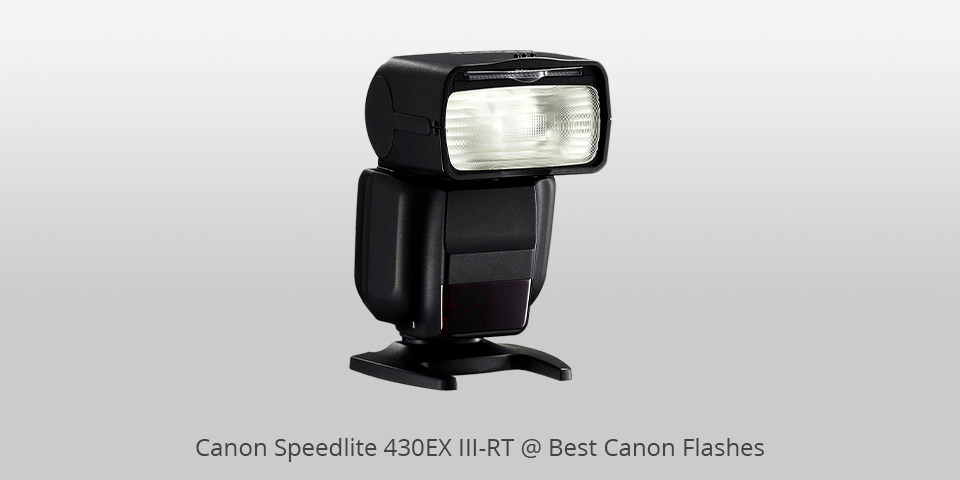
Dimensions: 4.1 x 4.2 x 2.9 inches | Weight: 295g | Zoom Range: 24-105mm | Guide number: 43 | Tilt / Swivel: 0-90° / 150-180°
This mid-range model deserves to be called the best speedlite for Canon, judging by its popularity among photographers. It comes with a convenient and simple design and layout, as well as an E-TTL mode of operation. All this makes it incredibly beginner-friendly for those who have not held a flash in their hands before.
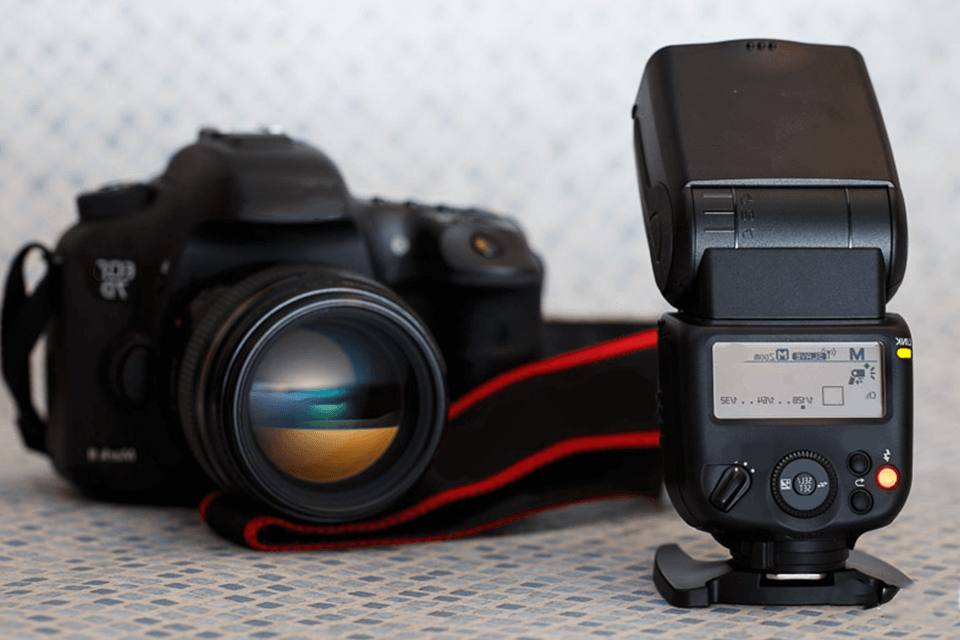
Manufacturers have paid special attention to the intuitiveness of control and improved assembly quality but have not equipped it with all the features of pro-level products. It is featured with high-speed and rear-curtain synchronization but not with snooze mode.
In general, most photography tasks are a breeze for this small flash for Canon cameras. What’s more, professional lighting features can be achieved by combining them with other supported flashes.
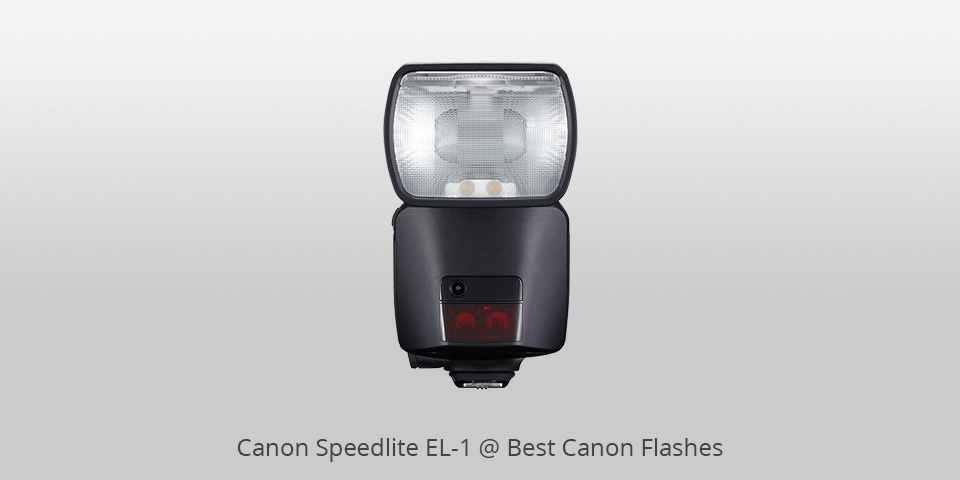
Dimensions: 8 x 4.5 x 11.2 inches | Weight: 687g | Zoom Range: 24-200mm | Guide number: 60 | Tilt / Swivel: -7-120° / 0-180°
This is the best external flash for Canon, which is in great demand among pro-grade photographers who do not skimp on the quality of photographing fast-moving objects. Manufacturers are proud of their brand-new invention and for good reason, because it is the first of its kind flash with a red ring, with which the advanced models of Canon lenses are equipped.
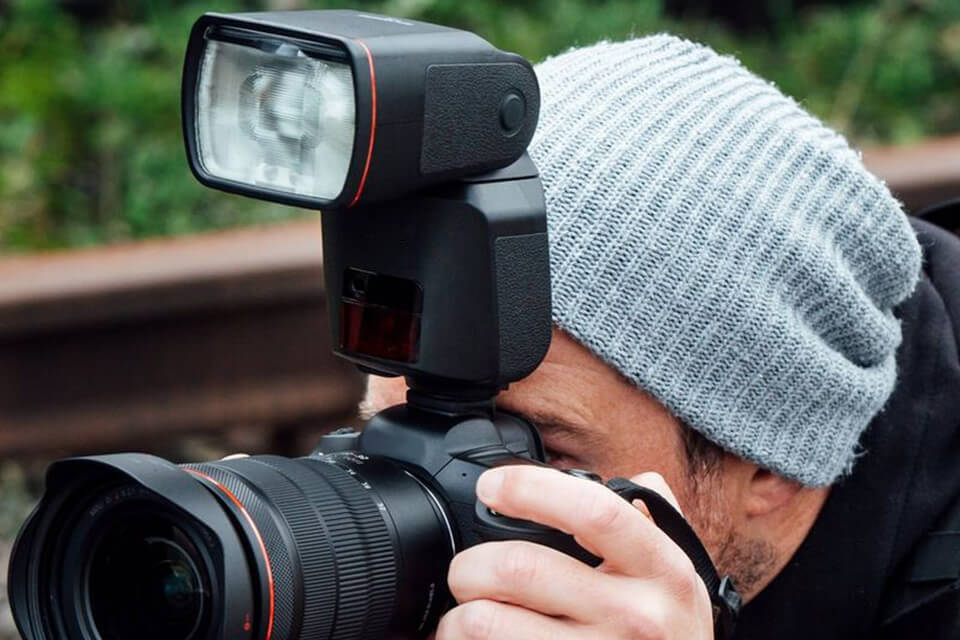
What’s more, you can recharge the Li-ion battery of this flash, which is also an innovation. It will give you an easier and more comfortable daily use.
One more hallmark of this camera flash is its amazing refresh rate. Even after setting it to full power, it will take you less than a second, namely 0.9 seconds, to use it again. So what could be better for the professional shooting of sports competitions and other highly dynamic events than it?
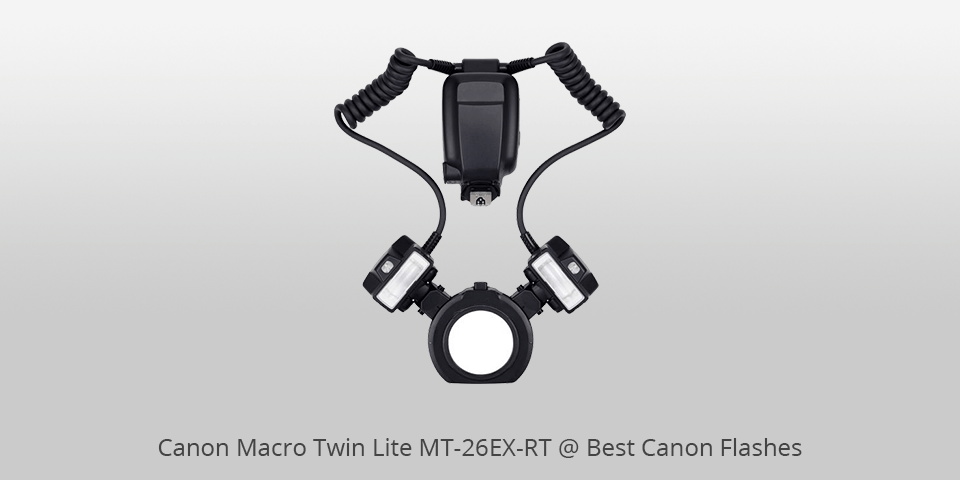
Dimensions: 1.9 x 9.1 x 3.6 inches | Weight: 570g | Zoom Range: - | Guide number: 26 | Tilt / Swivel: -
This flash for Canon camera is a real finding for macro photography of any objects that need close-up controlled lighting. It works great with all EOS DSLRs and Canon EF Lenses and EF-S Macro Lenses.
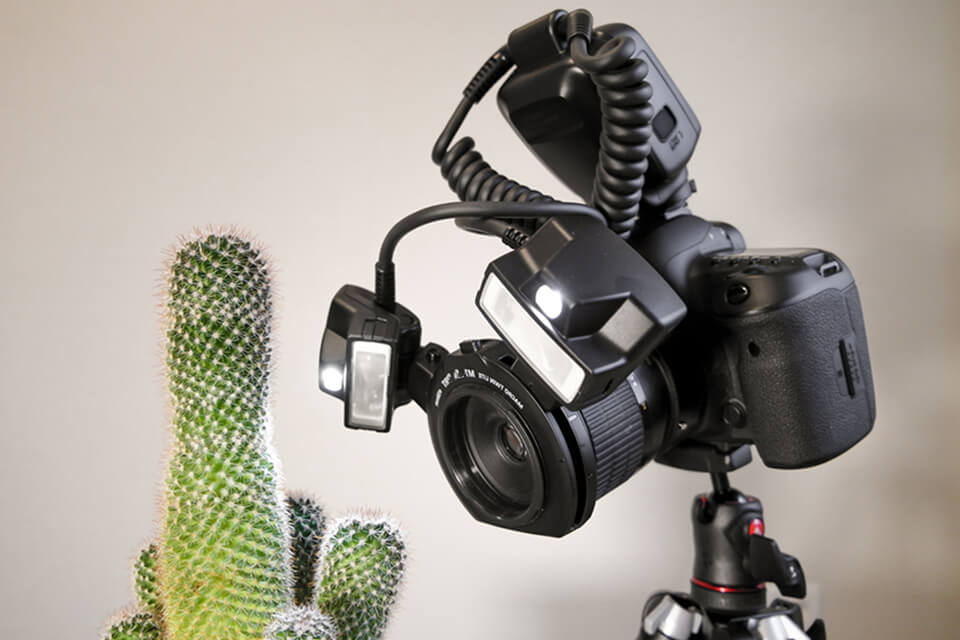
This model is introduced with two rotatable, dismountable flash heads, each of which you can control individually to reach an incredible 3D light effect. The flash also comes with a radio transmission wireless function that allows for deeper settings with multiple light sources. The developers have focused on ease of use, introducing two removable diffusers, an improved LCD screen, and intelligent controls in a new design of the device.
The flash will come in handy for photographers working in archives or museums to make their macro photos even better. This device costs a lot, however, if you are a real pro and need such gear every day, then it makes sense for you to take a closer look at it.
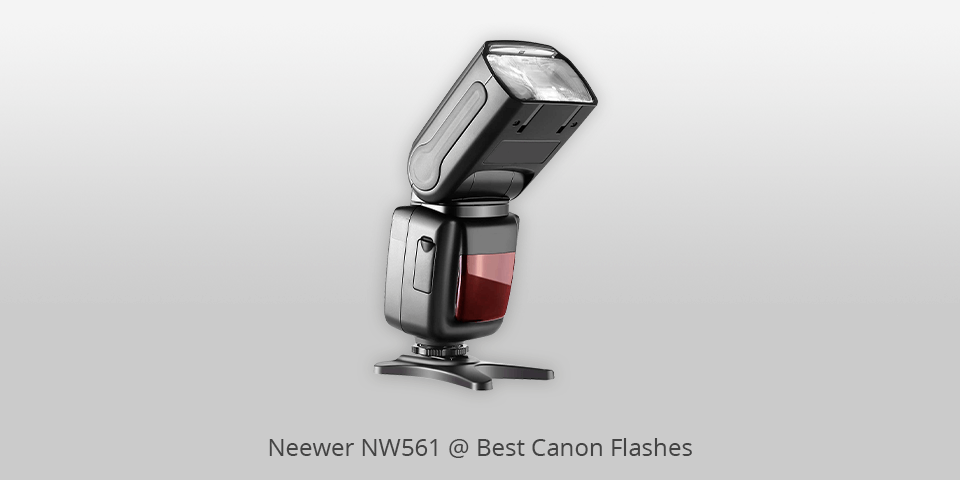
Dimensions: 9 x 6.25 x 3.5 inches | Weight: 570g | Zoom Range: 24-105mm | Guide number: 38 | Tilt / Swivel: -7-90° / 0-180°
For beginners in the world of photography, it is usually difficult to switch from the camera’s built-in flash to a plug-in one but all this ceases to be so with the Neewer NW-561. It’s inexpensive and easy to operate, and it comes with plenty of features to help you take incredible shots despite being an entry-level device. It is suitable for most digital SLR cameras. After trying it, you will be able to draw conclusions about the external flash as such and understand whether you need a device of a higher level.
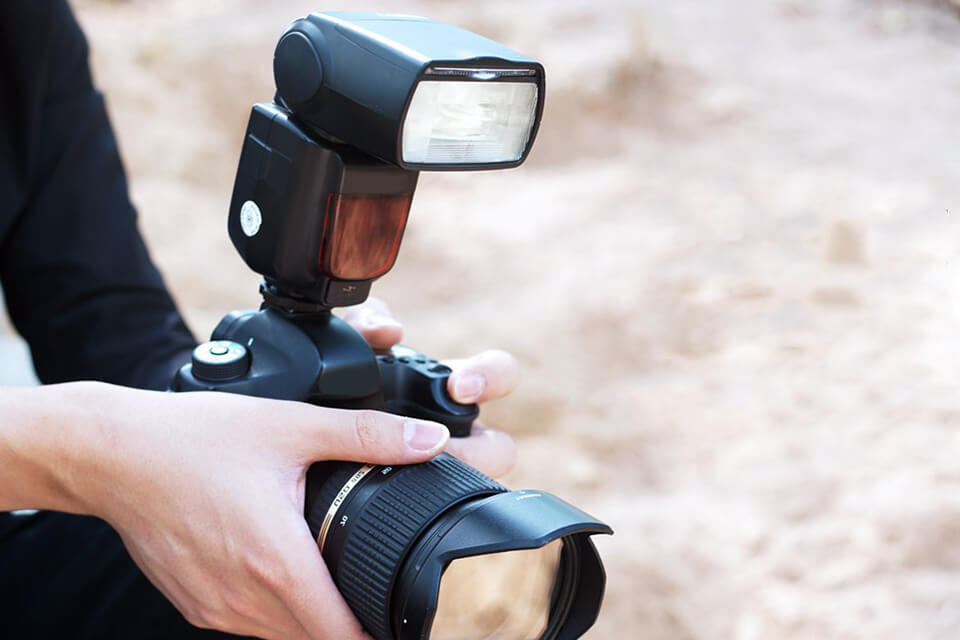
It comes without an LCD screen and automatic control, but it is quite affordable, like all models of this level. At the same time, you will find here a power-saving mode that makes long hours of shooting possible, as well as built-in protection against overheating.
Rotating the device horizontally and vertically helps you achieve greater clarity in your shots. It also comes with a slave mode which is very easy to use and is found in most high-end flashes. Thus, beginners can master it for future use. Summing up, I declare that this is the best external flash for canon at a reasonable price.
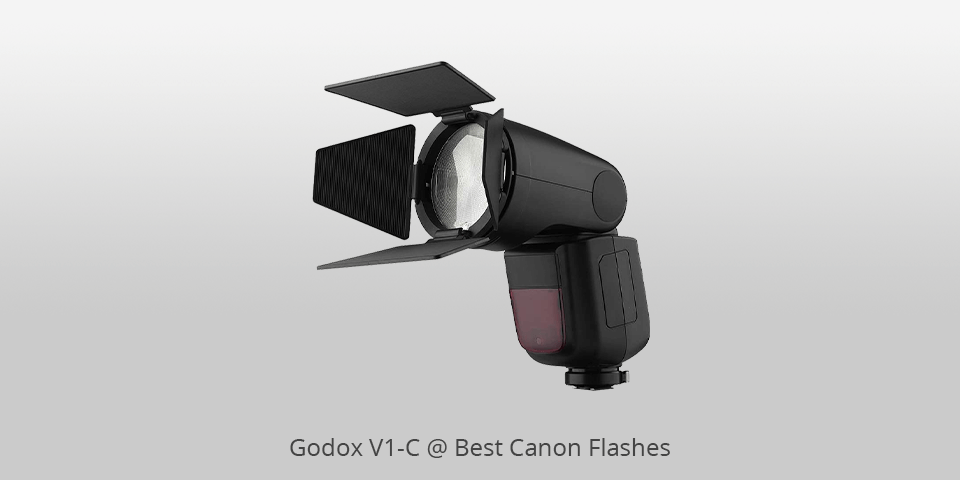
Dimensions: 8.9 x 8.27 x 4.09 inches | Weight: 520g | Zoom Range: 24-105mm | Guide number: 32 | Tilt / Swivel: -7-120° / 0-330°
One of the best canon flashes on our list features a round Fresnel head, and it’s the pro-grade Godox V1-C. This feature helps to achieve the softest and most uniform distribution of light, unlike standard rectangular ones. How does it work? It all comes down to the fact that most of the lighting attributes are round (umbrellas, octaboxes, etc.), and the round shape of the Fresnel’s head thus emits light, evenly filling these objects with it.
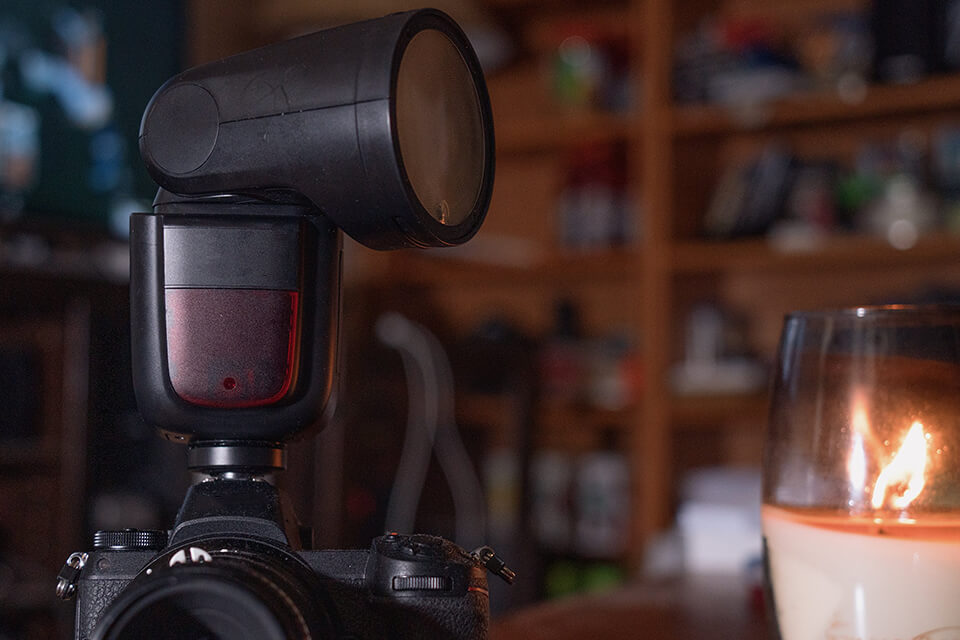
What’s more, its round shape helps it form light that hits the edge of the beam evenly as well. The device comes with magnets in the front of the head to make attaching and detaching Godox magnetic light modifiers even faster. If you are a wedding photographer or a portraitist, then I recommend this flash to you to save your time.
It also has a handy LCD screen. It is bright blue, making it highly visible even on the sunniest day. When you enter slave mode, it turns orange. It is convenient to always be aware of what mode you are in now.
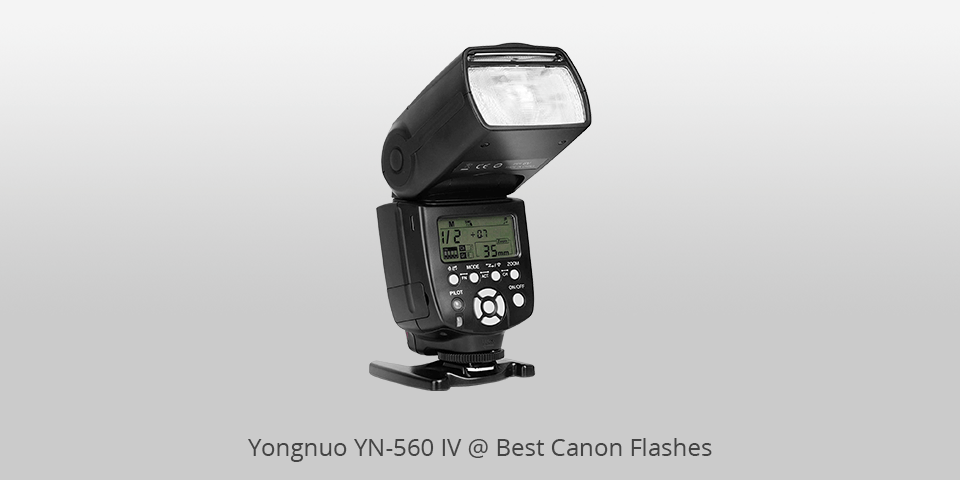
Dimensions: 8.5 x 3.9 x 3.4 inches | Weight: 566g | Zoom Range: 24-105mm | Guide number: 19 | Tilt / Swivel: 0-90° / 150-180°
If you are looking for an inexpensive manual flash, then YONGNUO YN560-TX is what you need. It can be used with many DSLRs, and its price tag is just under $90!
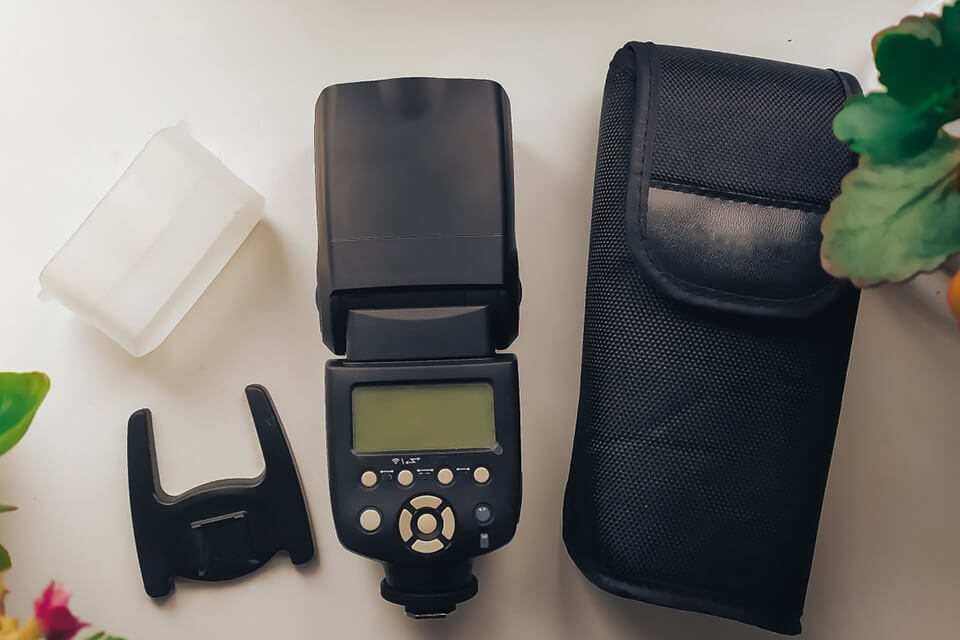
This wireless flash for Canon is great as a transmitter to control three lights. It’s feature-rich, fast and easy to use, and very reliable, making it durable and a great choice for the price. Some of the control buttons may be difficult for you at first, but once you get used to them, you will feel the ease of use.
There is no TTL in it, and the control is carried out only manually. Thus, it will help you out when shooting buildings, during photo shoots in a studio, or other objects where the lighting will be consistent. Shooting dynamic events, such as sports or travel, will be difficult with it. So, if manual control is what interests you now, then you won’t find something better than the YN560-TX combining newbie-friendliness and power.
| IMAGE | NAME | FEATURES | |
|---|---|---|---|

|
Canon Speedlite 430EX III-RT
OUR CHOICE
|
CHECK PRICE → | |

|
Canon Speedlite EL-1
DURABLE
|
CHECK PRICE → | |

|
Canon Macro Twin Lite MT-26EX-RT
POWERFUL
|
CHECK PRICE → |
To make a successful purchase, it is essential to thoroughly study the product with all its characteristics, and the flash for Canon camera is no exception here. Below you can find out the key specifications for this device, which are important to keep in mind when buying. This will make it loud and simple so that you understand which model will satisfy all your requirements.
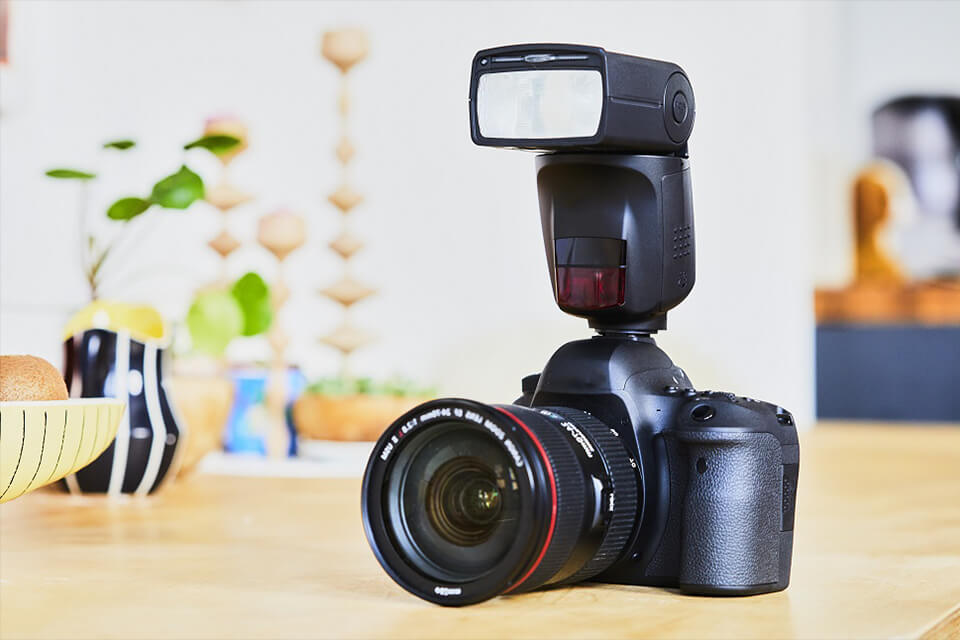
It shows how far the flash can illuminate the subject. The guide number value for many external flash units exceeds 30 meters. For comparison, the built-in flash is about 12 m. Based on this, the larger the value of the guide number indicated in the device passport, the better.
The second no less serious parameter to take into account is the combination of exposure metering, which allows the camera to set the desired flash power. There are three methods of metering: manual, automatic, and automatic TTL. Many models are equipped with three modes at once, which allows you to shoot under any conditions.
For everyday use, it is recommended to choose a flash that can be rotated up to 90 degrees, and on the sides – up to 180. This will help create different photo effects with textures and shadows.
Batteries are most commonly used, unlike accumulators. Pro-grade flashes are equipped with connectors for connecting an external power source. Please note that the more powerful the model, the more energy it consumes, so a sophisticated device on poor batteries is a bad idea.

This is a parameter indicating the power of the device. The longer the focal length, the more powerful the light pulse will be. In on-camera models, this parameter can be automatically adjusted to the focal length of the lens, while in studio models it will have to be adjusted manually.
Many parameters affect this indicator – the electronic insides of the device, its capacitor, and power supply, to name a few. Photographers who need a lot of shots in a short period (for example, reporters), should never neglect this parameter. Your best speedlite for Canon should have the maximum recycle rate as low as possible.
In terms of power, this is a flash. It alone is more powerful than many beginner continuous light kits. If your strobe is large, then you can even count on sunlight overpowering.
The essence of TTL is to automatically adjust the flash intensity as the object moves away or approaches the camera. Manual flash is preferred in situations where you need maximum control over the light source. It also performs well at nearly constant distances between the subject and the camera.
A speedlight (flashgun or hot shoe flash) is an additional lighting device. It is installed in a special place at the top of the camera, called the hot shoe slot. Combined with a receiver and transmitter, it can be used as a strobe. You can also try OFC, which stands for off-camera flash.
The full output of both the high-end built-in flash and the plug-in external flash lasts up to 1ms. Thus, the minimum duration of a uniform sensor exposure with flash at full power can be calculated as 2.4 ms + 1.0 ms, which is equal to 3.4 ms and corresponds to a shutter speed of approximately 1/290 s.